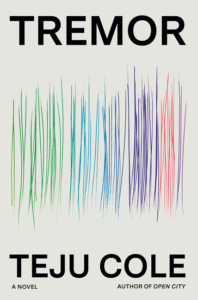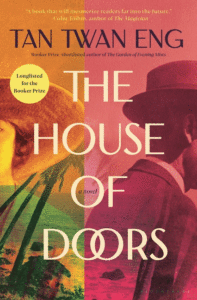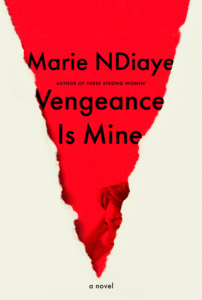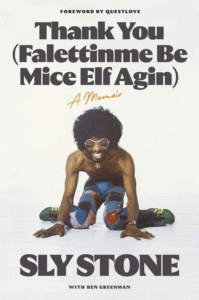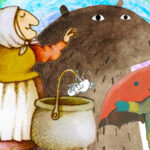What Should You Read Next? Here Are the Best Reviewed Books of the Week
Featuring New Titles by Teju Cole, Sly Stone, Marie NDiaye and More
Teju Cole’s Tremor, Sly Stone’s Thank You, and Marie NDiaye’s Vengeance is Mine all feature among the Best Reviewed Books of the Week.
Brought to you by Book Marks, Lit Hub’s home for book reviews.
*
1. Tremor by Teju Cole
(Random House)
11 Rave • 2 Positive • 2 Pan
“As a form for capturing the meaning and matter of our lives, novels still feel wholly up to the task. And anyone who doubts how effectively this elderly literary genre might survive and evolve to reflect an impossibly complicated world would do well to read Teju Cole’s involute new book, Tremor … t does not disappoint. Cole continues to demonstrate just how elastic a novel can be and how trenchant he is. His book crosses national boundaries just as confidently as it crosses literary ones. The eclectic structure may be challenging, but, given the continuity of Cole’s vision, it’s never baffling … Has little traditional plot but never lacks for interest or incident … To read some of these chapters is to see the essay form in its most elegiac, elastic and epiphanic mode.”
–Ron Charles (The Washington Post)
2. The House of Doors by Tan Twan Eng
(Bloomsbury)
6 Rave • 3 Positive • 1 Mixed
Read an excerpt from The House of Doors here
“Outstanding … Eng ingeniously inserts a further shocking twist. But what most gives his novel its grip is his masterly conjuring up of Maugham’s imaginative world and the steamy tropic latitudes in which it burgeoned … Occasionally the prose becomes overclamorous … Beautifully detailed and encompassing the vagaries of Maugham’s life, the contours of his creativity and the personal and political tensions covertly quivering through the sultry colony around him, The House of Doors is a finely accomplished piece of work.”
–Peter Kemp (The Sunday Times)
3. Vengeance is Mine by Marie NDiaye
(Knopf)
3 Rave • 3 Positive
Read an essay by Jordan Stump on translating Marie NDiaye here
“The characters in Marie NDiaye’s novels are an unsettling brood … A master at agitating, probing and upending expectations … She presents a new litter of misfits and constructs one of her most beguiling and visceral tales … NDiaye deals in impressions and captures a particular kind of emotional delirium in Vengeance. She leans into jaggedness, twisting her narrative to mimic Maître Susane’s fraying psychological state as she searches for a kind of truth.”
–Lovia Gyarkye (The New York Times Book Review)
**
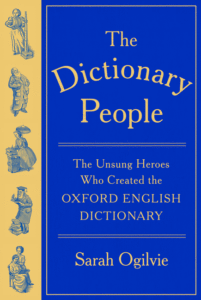
1. The Dictionary People: The Unsung Heroes Who Created the Oxford English Dictionary by Sarah Ogilvie
(Knopf)
7 Rave • 1 Positive
“Ogilvie has provided a sprightly, elegant tribute to the ordinary readers…who made up the bulk of the O.E.D.’s work force, largely unpaid and unsung, filling in millions of slips in their spare time … An engrossing survey … The real joy of The Dictionary People is to be reminded that any group of people pinned at its intersection will still burst forth every which way, a tapestry of contradictions, noble and ignoble, wild and banal.”
–Dennis Duncan (The New York Times Book Review)
2. Thank You (Falettinme Be Mice Elf Agin): A Memoir by Sly Stone
(Auwa)
3 Rave • 6 Positive • 1 Mixed
“Sly Stone has been MIA for so long, many people will probably be surprised to learn that he is still alive. Actually, at age 80, the incredible and unpredictable funk music pioneer has, once again, surprised us all by producing a frisky, remarkably vivid and cogent account of his life and career.”
–Joel Selvin (The San Francisco Chronicle)
3. The Lumumba Plot: The Secret History of the CIA and a Cold War Assassination by Stuart A. Reid
(Knopf)
4 Rave • 1 Positive
Read an excerpt from The Lumumba Plot here
“Reid…has arrived with a carefully researched book that warns us about what is lost when tensions between great powers play out in the developing world … Reid develops his main characters beautifully, especially Lumumba, who passes ‘like a meteor’—to borrow the lovely phrase of his daughter Juliana—through its pages … Lumumba is re-elevated by the end of Reid’s book, mainly through the sea of indignities he suffered as a captive … argues convincingly that by ordering the assassination of Lumumba, the Eisenhower administration crossed a moral line that set a new low in the Cold War.”
–Nicolas Niarchos (The New York Times Book Review)



